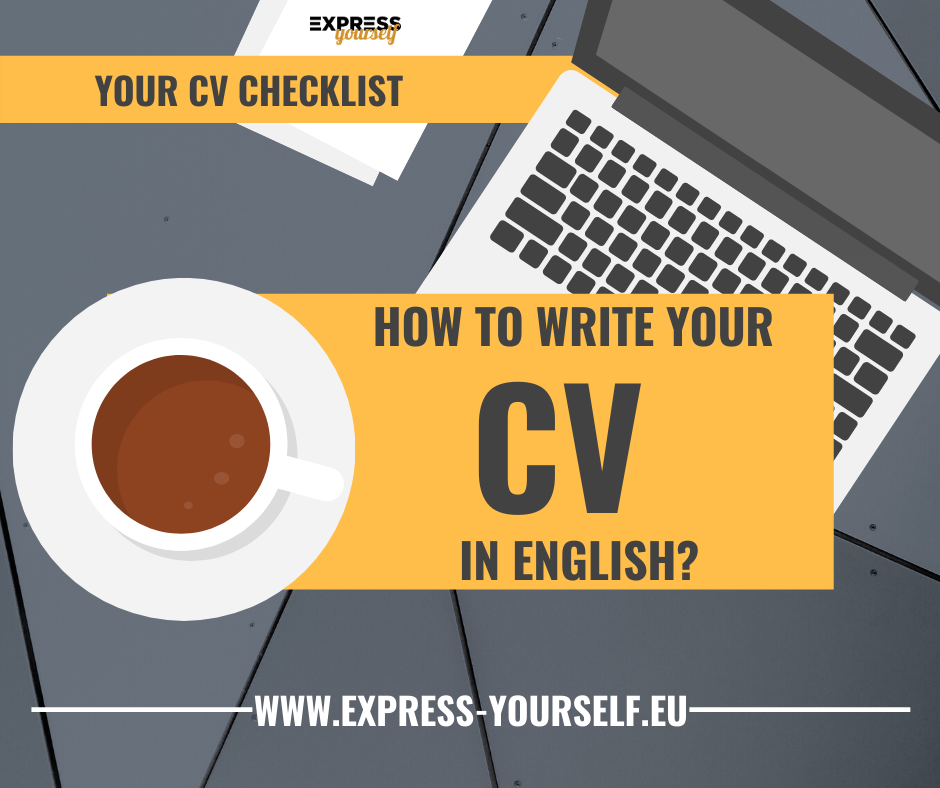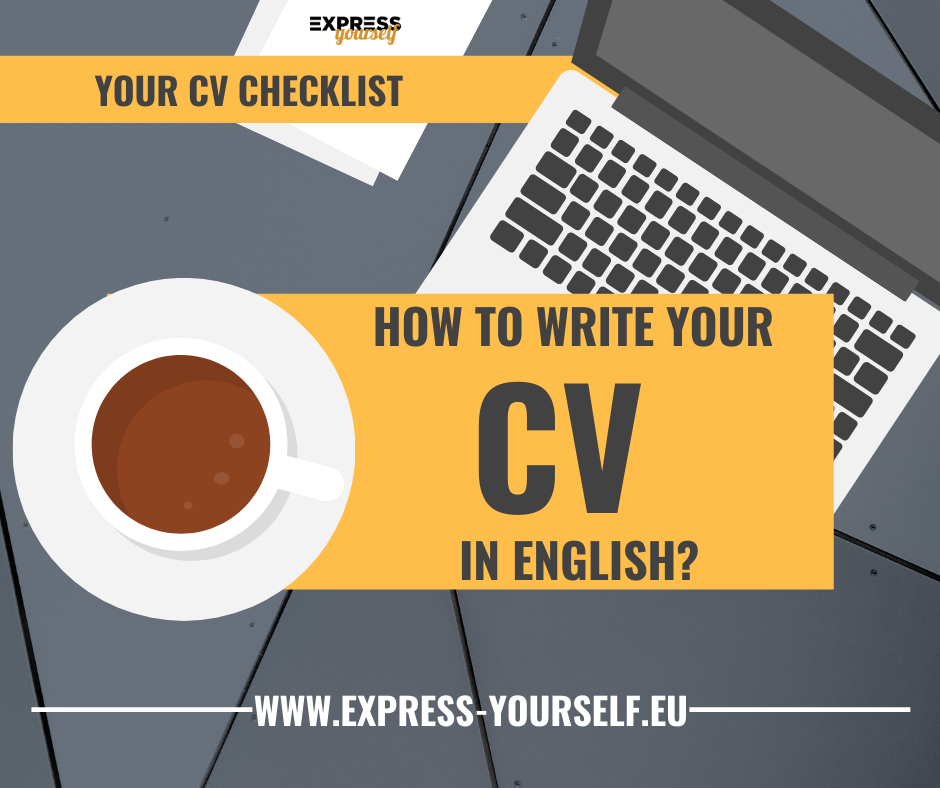
How to write your CV in English?
Have you ever applied for a job? Everybody has. Even if you have done it a few times by now, or if it is the very first time you are writing your CV, you need to ask yourself the essential questions:
How to present myself?
How to describe by experience and skills?
What other information should I include in my CV?
What to include in your CV?
Your CV should always contain the categories which will allow the recruiters to get more information about you and check if you are a match for the position they are recruiting for.
Personal data
In this section of your CV you should include your name, surname, address and contact details (phone number WITH your country directory – for example 00 33 for France- your email, Linkedin profile link and any social media relevant to the job).
Should I include a photo?
This is a subject for a separate article, but yes, standard practice today requires you to have a photo on your CV. Make sure it is professionally looking, and not too photoshopped.
Education
In this section include all relevant education, in reversed chronological order. This means you begin with the most recent one and go back in time.
Tip 1: only include relevant education
Tip 2: stop at high school reference. Nobody cares which middle school you went to.
Work experience
In this section of your CV you should only include data relevant to the job you are applying for. Before you start typing, sit down and list the jobs you have had, describe duties they involved and only choose the ones which are RELEVANT to the new job.
For instance, imagine you want to be a project manager for a Tour Operator and your past experience includes putting products on the shelf in a supermarket, back when you were a student. If it is not relevant to the new job you can skip it all together.
Tip 1: Use reversed chronological order
Tip 2: Imagine you are the recruiter. Which work experience would you be most interested in from a candidate?
Skills
This is the most important section of a CV today. Sure, your education matters, but recruiters focus more and more on skills.
There are three main categories to consider here.
Hard skills
Hard skills are all the skills you can actually learn. They include computer literacy, using various software, but also technical skills such as repairing jet engines or cutting hair.
Languages and driving licence also go in this section.
Soft skills
Soft skills are the ones which are not taught at most schools. They are often referred to as “human skills.” They include communication, time management, leadership or lateral thinking.
Transferable skills
Transferable skills are the skills which you might have learnt on one job, yet can be easily transferred to a completely unrelated job.
Imagine a civil engineer preparing detailed project quotes for multi-million dollar projects such as a bridge construction. A career change might take this person to work for a non-governmental organisation protecting wildlife, yet his experience in budgeting, preparing quotes, and working on the financial side of projects will be a fantastic transferable skill for the new, unrelated job.
Tip 1: make a list of your skills
Tip 2: ask yourself if they are relevant to the new job
Miscellaneous
This mysteriously sounding category is in fact the place to put all information you would like the recruiter to know, which is neither education, work experience nor skills.
Here you might include your hobbies, interests & volunteering experience.
Get your free CV checklist today!



